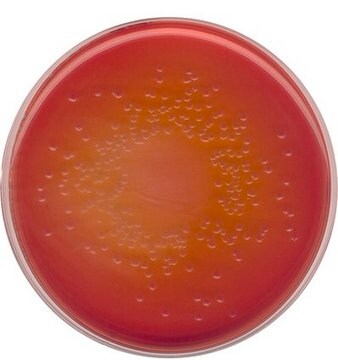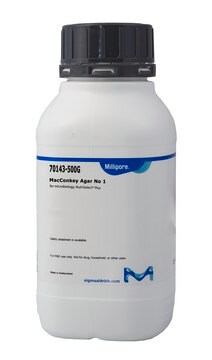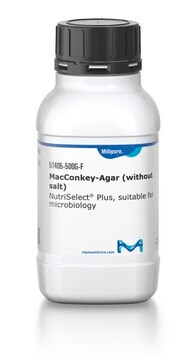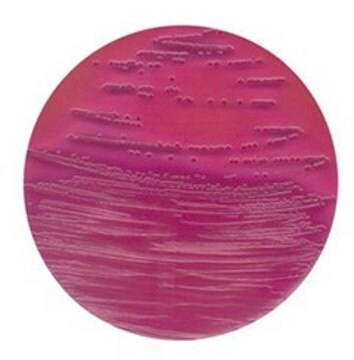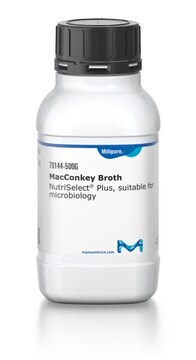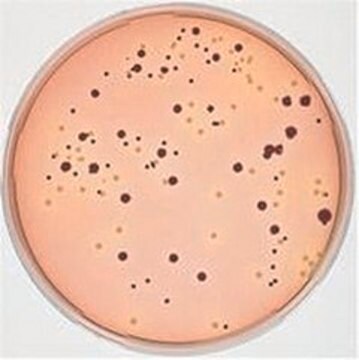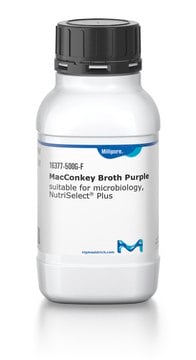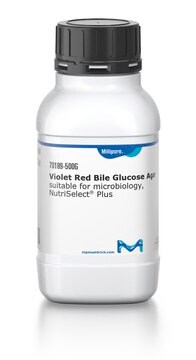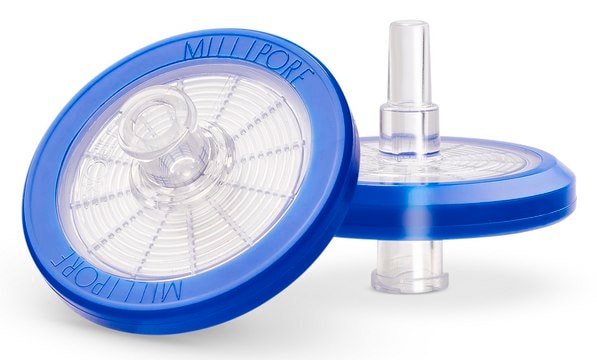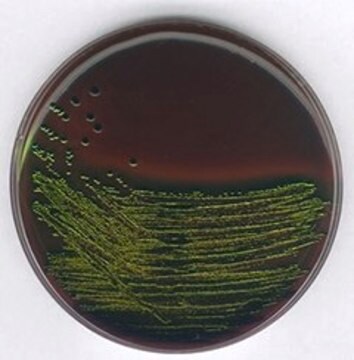M8302
MacConkey Agar with Crystal violet, Sodium chloride and 0.15% Bile salts
NutriSelect® Plus, suitable for microbiology
About This Item
Recommended Products
sterility
non-sterile
Quality Level
form
powder
shelf life
limited shelf life, expiry date on the label
manufacturer/tradename
NutriSelect® Plus
technique(s)
microbiological culture: suitable
pH
7.2±0.2 (25 °C)
application(s)
environmental
food and beverages
microbiology
suitability
selective and differential for Enterobacter spp.
selective and differential for Enterococcus spp.
selective and differential for Escherichia coli
selective and differential for Klebsiella spp.
selective and differential for Proteus spp.
selective and differential for Salmonella spp.
selective and differential for Shigella spp.
selective and differential for Streptococcus spp.
selective and differential for coliforms
selective and differential for enterobacteriaceae
Looking for similar products? Visit Product Comparison Guide
Related Categories
Application
Components
Peptic digest of animal tissue 20.0
Lactose 10.00
Bile salts 1.50
Sodium chloride 5.00
Crystal violet 0.001
Neutral red 0.05
Agar 15.00
Preparation Note
Footnote
The designations basic, plus, or prime are added to indicate the quality control level, from basic quality control to standard QC plus to prime for full regulatory compliance.
Legal Information
Storage Class Code
11 - Combustible Solids
WGK
WGK 3
Flash Point(F)
Not applicable
Flash Point(C)
Not applicable
Personal Protective Equipment
Choose from one of the most recent versions:
Already Own This Product?
Find documentation for the products that you have recently purchased in the Document Library.
Customers Also Viewed
Articles
Salmonella contamination is the second leading cause of food-borne illness worldwide. Controlling outbreaks of Salmonella is an important task for food regulators, restaurants and the food industry in general. The Salmonella family includes over 2,300 serotypes of bacteria, but two types, Salmonella enteritidis and Salmonella typhimurium, are responsible for about half of all human infections. Most outbreaks of Salmonella are traced back to dairy, poultry and meat products, but Salmonella can grow on nearly any food. Chicken, eggs and their derivative products are particularly high risk.
An article concerning selective growth media for differentiation and detection of Escherichia coli and other coliforms.
Our team of scientists has experience in all areas of research including Life Science, Material Science, Chemical Synthesis, Chromatography, Analytical and many others.
Contact Technical Service